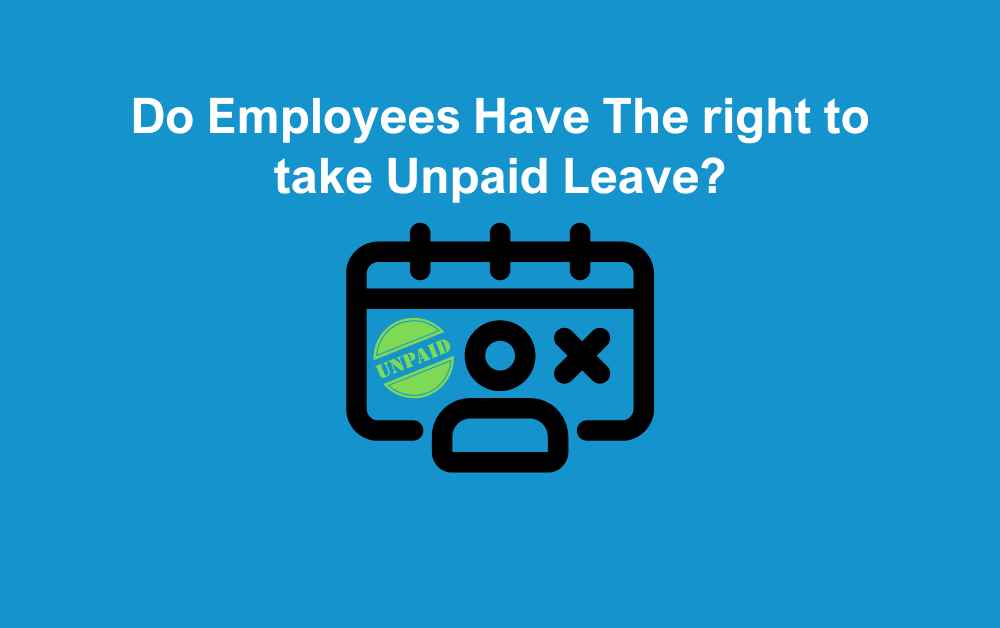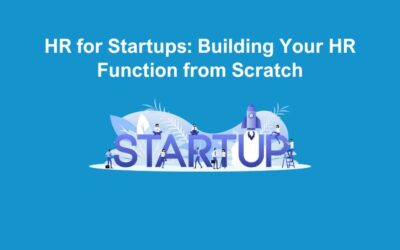A question we’ve been asked a lot lately is whether employees are entitled to take unpaid leave. Guidance on paid leave such as sick leave and holiday entitlement is a lot clearer, which makes it a lot easier to understand compared to unpaid time off. From caring responsibilities, personal emergencies, or just extra time off, there are various situations where an employee may request leave without pay.
In this blog, we’ll explore the legal considerations around this, when it can be requested, and what you need to know to handle these requests fairly and in line with employment law.
Jump to a Section:
- Can an Employee Take Unpaid Leave?
- Unpaid Parental Leave
- Carrying Over Parental Leave to Another Job
- Shared Parental Leave
- Time off for Jury Service
- Unpaid Bereavement Leave
- Unpaid Time off Granted at an Employer’s Discretion
- Unpaid Leave Updates: Employment Rights Bill
- Unpaid Leave Policy
- Flexible Working
- How The HR Booth Can Help
- Contact Us
Can an Employee Take Unpaid Leave?
In most situations, there’s no legislation on staff’s entitlement to unpaid time off. This means that it’s up to you as an employer to decide to approve this. There are certain circumstances where employees have a legal right to request unpaid time off. This includes
- Parental leave (including shared parental leave)
- Jury service selection
- Specific instances of bereavement and funeral arrangements
Unpaid Parental Leave
According to the Government website, staff are able to take unpaid leave for parental leave to:
- Spend more time with their children
- Settle their kids in to a new childcare arrangement
- Look at new schools
- Spend additional time with family, for example, visiting grandparents
It’s important to remember that their employment rights are protected during this time off. Working parents are entitled to take up to 18 weeks’ leave for each of their children up to their 18th birthday. This is limited to no more than 4 weeks per year for each child. Unless the employer has agrees to a different arrangement). The time off must be taken as whole weeks instead of individual days. For example, If your employee works 3 days a week, they can take 3 days.
If the employee’s child has a disability, they are not limited to this and don’t have to take the time all at once.
Carrying Over Parental Leave to Another Job
Parental leave applies to each child, not an individual’s job. Therefore, If the employee has taken 4 weeks off in a previous job, they will carry over 14 in the next position.
Shared Parental Leave
Staff are able to take shared parental leave with their partner if they are having a baby, having a baby through surrogacy, adopting, and fostering a child they plan to adopt. They can share up to 50 weeks of leave in the first year after their child is born or placed in their family. 37 weeks of this time off can be paid. They can either take time off at the same time or stagger their leave to balance their workload and time off more effectively.
Time off for Jury Service
As an employer, you are expected to allow staff to take time off to fulfil public duties such as Jury Service. You are not legally expected to pay staff during this time, however, some employers choose to do this anyway. If you choose not to pay staff during their time at Jury service, they will be able to claim loss of earnings from the court.
Unpaid Bereavement Leave
If your employee has recently faced a bereavement, they may be entitled to paid or unpaid leave.
Bereaved parents can take up to two weeks paid leave. However, this only applies if the employee has worked for your company for 26 weeks or more. If they earn below the lowest earnings limit, they will only be able to take unpaid time off. You can choose to pay the employee as a gesture of good will.
If an employee loses a dependent, they’re entitled to a reasonable amount of time off work. This typically covers spouses, parents and children, though the definition can be broader. The law doesn’t set a specific duration, but employees are usually entitled to unpaid leave for funerals.
Unpaid Leave Granted at an Employer’s Discretion
Other reasons that employee’s may request unpaid time off include:
- Career break
- A day to focus on studying
- Time off to look after non-dependants
- Dentist or health appointment (it’s important to remember that pregnant employees have a right to take paid time off for antenatal and pregnancy-related appointments.)
Unpaid Leave Updates: Employment Rights Bill
The Government mentioned in their initial employment rights bill that they plan to update certain rules when it comes to unpaid time off. This included:
- A first day right to unpaid parental leave instead of the 26-week limit.
- 26-week limit will also be removed for bereaved parents.
- The law will introduce a broader right to paid bereavement leave. It’s not yet clear what will be covered, but most employees will likely be entitled to some form of leave following a bereavement.
The employment rights bill is still making its way through parliament and we will keep you updated on progress.
Unpaid Leave Policy
Given the confusion around unpaid leave, it can be a good idea to have a clear policy in place. This can help you ensure consistency, transparency, and fairness when handling requests. Your policy can outline when this may be granted, how to request it, and what rights and responsibilities apply. Policies should include:
- Clear guidance on when unpaid leave should and shouldn’t be granted
- Who is entitled to grant the request. For example, a manager, or HR.
- An appropriate notice period
- How long the unpaid leave can last for and how many days can be requested in one year.
- Share any unpaid leave that employees are entitled to by law.
Flexible Working: An Unpaid Leave Alternative
In some cases, flexible working options such as reduced hours, compressed weeks or remote working may offer a better solution. Encouraging open conversations can help find a balance that suits both employee and employer. Giving your staff the flexibility to take personal time needed without having to take unpaid leave. This can be a more inclusive approach that can improve productivity and loyalty in the workplace.
How The HR Booth Can Help
At The HR Booth, we support employers across the UK with practical, tailored HR advice. Whether you need help drafting a policy, managing requests fairly, or keeping up to date with new legislation, we’re here to help.







